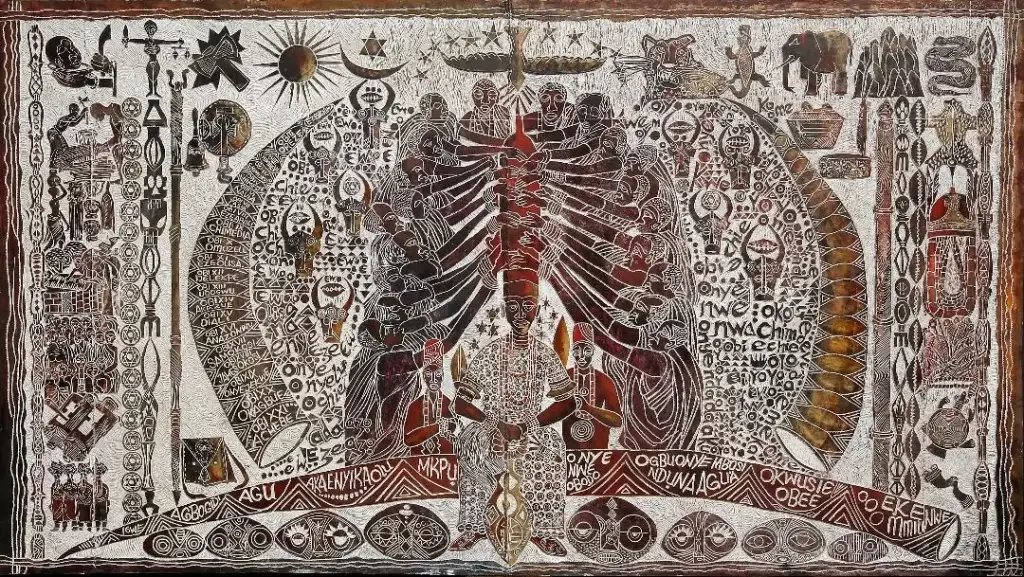The primary purpose of this website is to provide accurate and authentic information about Onitsha.
The Monarchy in Onitsha: A Symbol of Tradition and Leadership
The king, known as the Obi, is the apex of traditional governance in Onitsha. . In this context, the king is held in the highest esteem by his subjects as reflected in the several titles ascribed to him (Please see various names of the Obi of the Onitsha) He embodies the essence of every Onitsha indigene and serves as the military, political, diplomatic, and social leader of the community. The Obi is also the intercessor on behalf of his people to the ancestors and God Almighty.

Characteristics of the Obi
- Spiritual significance: The Obi is believed to possess spiritual powers, negotiating the fortunes of his community with the ancestors and God.
- Fair and equitable leadership: The Obi must divest himself of earthly affiliations such as the Ozo title, membership of the age grade and other community organizations, diokpala-ship (spiritual head) of his family, kindred, or quarters, etc, to lead his people fairly and transparently.
- Constant prayers: The Obi offers prayers for the well-being of his people and seeks forgiveness for communal misdeeds.
Succession to the Throne – A Rotational System
The Obi of Onitsha succession rotates between the Okebunabo (Dei) and Umuezearoli sub-clans of the Umuezechima royal clan. This system:
- Promotes Inclusivity and Balance: Ensures each sub-clan takes turns, preventing dominance.
- Preserves Tradition and Stability: Rooted in tradition, it maintains peace and reduces conflicts.
This system prioritizes harmony and shared leadership among the sub-clans, reflecting Onitsha’s unique cultural context.
